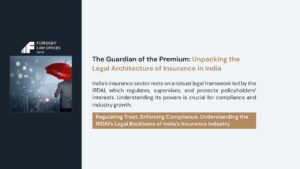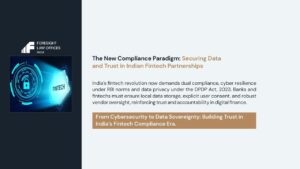The power of a governmental authority or a Public Sector Undertaking (PSU) to blacklist (or debar) a contractor or supplier from participating in future public tenders is an inherent executive function, essential for protecting public funds and ensuring the integrity of the procurement process. While this power is vital, its exercise is not absolute and must conform to the constitutional mandate of Article 14 (equality and non-arbitrariness). From an Indian judicial perspective, blacklisting is viewed as a drastic measure, often equated to a “civil death” for a business, necessitating a high threshold of culpability known as egregious misconduct.
This educational perspective reviews the valid grounds for blacklisting and illuminates the settled judicial principle that routine contractual disputes or simple failures are generally insufficient to warrant this severe administrative penalty.
I. Legal and Constitutional Foundation of the Blacklisting Power in Public Tender
The authority to blacklist is derived not from a single comprehensive statute, but from the combined effect of Article 298 of the Constitution of India, which grants the executive power to carry on trade and make contracts, and the inherent right of any contracting party (including the State) to choose with whom it will deal. However, when the State acts, its decision-making process is overlaid by the Fundamental Rights, particularly the right to equality under Article 14.
The Supreme Court, in landmark judgments such as Erusian Equipment & Chemicals Ltd. v. State of West Bengal (1975) and Kulja Industries Ltd. v. Chief Gen. Manager W.T. Proj. BSNL (2014), established the principle that any blacklisting order is subject to judicial review on the twin tests of non-arbitrariness and proportionality. This constitutional scrutiny elevates the requirement for blacklisting beyond mere business dissatisfaction to the level of demonstrated serious culpability, egregious misconduct.
II. Valid Grounds for Blacklisting: The Egregious Misconduct Standard
The necessity of proving egregious misconduct stems from the nature of blacklisting itself. It is a punishment that operates for the future, precluding an entity from accessing public work, and thus must be reserved for actions that betray a lack of business integrity and demonstrate that the entity is unfit to deal with the public exchequer.
The following categories of acts are consistently upheld by Indian courts as grounds that meet or cross the threshold of egregious misconduct:
1. Fraud and Misrepresentation
This is arguably the most severe ground. It includes deliberate acts of deception aimed at securing an undue advantage or causing wrongful loss to the government.
- Submission of Falsified Documents: Providing forged bank guarantees, fake experience certificates, fabricated audit reports, or incorrect declarations (e.g., non-blacklisting declarations) to influence the tender evaluation process.
- Wilful Concealment of Material Facts: Deliberately hiding information that would render the bidder ineligible or disqualified under the tender conditions.
2. Corrupt and Anti-Competitive Practices
These actions directly undermine the fairness and transparency of public tenders, which are fundamental tenets of a democratic state.
- Corruption and Bribery: Offering, giving, or agreeing to give any gratification to a government official to influence the procurement process or contract execution.
- Bid-Rigging and Cartelisation: Collusive tendering where bidders secretly coordinate their bids to artificially raise prices or manipulate the outcome, violating the spirit of competitive bidding.
3. Habitual and Persistent Default
While a single, non-malafide breach may not qualify, a pattern of systemic failure or deliberate poor performance constitutes egregious misconduct.
- Habitual Failure to Perform: Repeatedly failing to meet delivery schedules, quality standards, or material terms of the contract, indicating a persistent lack of commitment or capability.
- Supplying Sub-Standard/Defective Goods with Malafide Intent: Delivering goods or works that are fundamentally unusable or defective, coupled with evidence of a dishonest intention to profit from poor quality.
4. Threats and Undue Influence
Any attempt to intimidate government officials or subvert the decision-making process justifies immediate blacklisting. This includes misbehaviour or threatening departmental and supervisory officers during the execution of work or the tendering process.
III. Insufficient Grounds: The Contractual Dispute Exception
The core of the judicial approach is the distinction between a private dispute over a contract and an administrative decision to exclude a non-responsible entity from public dealing. Indian jurisprudence strictly limits the use of blacklisting in the following scenarios:
1. Mere Breach of Contract (Lack of Mens Rea)
A simple, non-malafide breach of a contractual term, such as a delay in delivery, failure to provide full stock, or issues arising from logistical constraints, generally does not constitute a ground for blacklisting from public tenders.
- Judicial View: The Supreme Court in the recent case of M/S Techno Prints v. Chhattisgarh Textbook Corporation (2025) clarified that blacklisting is not an ordinary contractual remedy and “should not be resorted to for every breach of contract, especially where such breach arises from extenuating circumstances and lacks any element of mala fide conduct.”
- Remedy: For these simple breaches, the government’s remedies are typically contractual: imposing liquidated damages, forfeiting the Earnest Money Deposit (EMD) or Performance Security, or terminating the specific contract, but not blanket debarment from future public tenders.
2. Existence of a Genuine and Bona Fide Dispute
Where a contractor raises a genuine and reasonable counter-claim or dispute regarding the interpretation or execution of the contract (e.g., claiming delay was due to the government’s failure to provide site access or necessary inputs), blacklisting is often considered premature and arbitrary.
- Principle: As held by the Supreme Court in the case of The Blue Dreamz Advertising Pvt. Ltd. v. Kolkata Municipal Corporation (2024), when a contractor raises a bona fide dispute, they cannot be declared a ‘defaulter’ or ‘dishonest’ entity until the contractual dispute is resolved, typically through arbitration or civil litigation. Using blacklisting to resolve or bypass a genuine dispute is an abuse of administrative power.
3. Breach Due to Extenuating Circumstances
Events of Force Majeure or circumstances beyond the contractor’s reasonable control (e.g., delays caused by the COVID-19 pandemic, as discussed in the Techno Prints case) are generally not considered grounds for blacklisting, as they lack the necessary element of dishonest or irresponsible conduct.
IV. Conclusion: The Constitutional Check on State Power
The judicial insistence on egregious misconduct acts as a crucial constitutional check on the executive’s power to blacklist. The principles distilled from Indian jurisprudence ensure that while the State has a duty to protect the public interest from unscrupulous operators, it cannot use blacklisting as an instrument of coercion to settle simple contractual claims or penalise non-malafide failures.
In essence, blacklisting is reserved for the entities that demonstrate, by their actions (fraud, corruption, bid-rigging, or habitual dishonest conduct), that they have forfeited the right to the equal treatment guaranteed under Article 14 to deal with the State. The bar is deliberately set high,requiring evidence of a fundamental defect in the firm’s business integrity, to ensure that this potent administrative weapon is used judiciously and proportionally. This adherence to the rule of law maintains fairness in the public procurement ecosystem, promoting healthy competition while safeguarding public resources.






